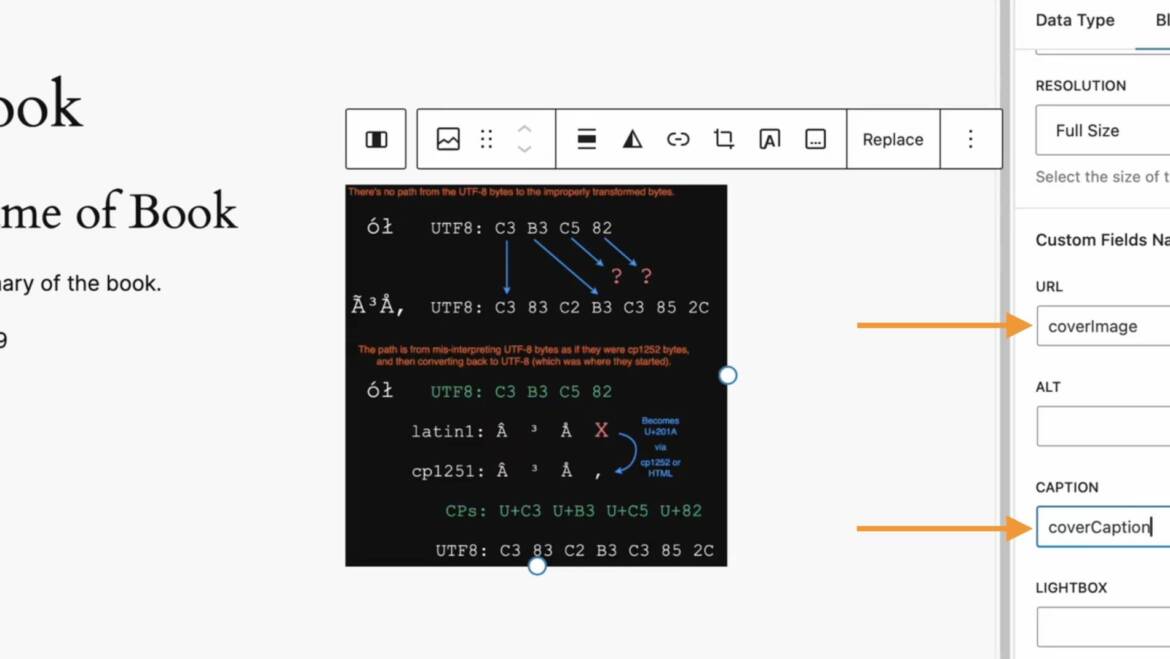With WordPress immediately it is advisable use customized code or a plugin to create a customized publish sort like “Guide” or “Member.” This can be a widespread want, and there are a number of approaches; nonetheless, one problem is that the end-user expertise might be complicated and non-standardized.
A number of weeks in the past, some Automatticians and I went to the seventh CloudFest Hackathon in Rust, Germany to discover an answer for this. We began hacking on a deeply nerdy mission, JSON Schema kinds and fields, and ended up with an enchanting method to an age-old query: What if you happen to may register customized publish sorts and customized fields straight within the WordPress admin?
Forty-eight hours turns an concept into actuality
The CloudFest Hackathon is an occasion that permits builders from across the globe to take concepts and switch them into realities.
In the course of the Hackathon, groups of builders from numerous content material administration techniques and internet hosting corporations come collectively to contribute to tasks that align with the core rules of the occasion: the tasks should be not-for-profit, interoperable, and open supply.
Final yr, we labored on a mission that allowed us to embed WordPress straight in VS Code. We constructed the WordPress Playground VS Code extension on high of WordPress Playground. It makes use of WebAssembly to run WordPress fully inside the browser, and it turned out fairly darn slick.
This yr, we targeted on a JSON Schema Area/Kind Renderer. Whereas most of us explored utilizing JSON Schema to dynamically register admin kinds and fields, Dennis Snell and Adam Zieliński determined to take the mission one step additional! They hacked collectively a plugin that launched the flexibility to register customized publish sorts and customized fields straight from the WordPress admin. Extra notably, all the things occurs inside the block editor—it’s a must to see it to imagine it:
This work poses some fascinating prospects for customized publish sort and customized area implementation as a result of it may basically change the best way low- to no-code WordPress customers modify their websites.
Naturally, I took the concept to Twitter/X:
I received fairly a variety of responses, starting from “Heck Sure! It ought to have already been a core characteristic now. Such an integral a part of each different web site” to “Admin ought to solely be for content material and person administration. Every part else needs to be configured in code and model controllable.”
So why the vary in responses? Let’s talk about.
It turned out to be fairly easy
Dennis and Adam constructed our prototype utilizing the next conventions:
- A customized publish sort
wp_data_typeholds templates for user-defined information sorts. - The title of a publish within the
wp_data_typedefines the title of the brand new information sort. The publish itself is the rendering template and includes any set of regular blocks. Names are given to pick block attributes inside the publish, and these names are mapped into the information sort. - When creating new posts for the given information sort, the locked template is copied from the
wp_data_typetemplate, and the block attribute annotations are preserved. - Lastly, when rendering the
wp_data_typetemplate, the attributes are pulled from the person publish of the given information sort and spliced into the template.
The fascinating concept is that we don’t have to consider kind fields; blocks already present a rendering view and a modal enhancing expertise. We are able to depend on the elemental means blocks work and use the exact same person expertise to create customized information sorts in a means that customers are already conversant in when enhancing a publish or a web site.
Customized publish sorts outline customized information sorts, so we use a template to not solely outline the information sort, but in addition to offer a default rendering template. Every information attribute inside a publish sort has a area the place it’s attainable to outline that area with its JSON-LD property.
For instance, say you had a “Guide” customized publish sort. A number of JSON-LD properties you can outline utilizing customized fields are:
descriptioncopyrightYearwriterbookEditionbookFormatisbnnumberOfPages
We additionally selected to retailer a replica of every block attribute within the JSON attributes for that block. Since WordPress can now present a post-to-JSON operate, which merges the extracted attributes with the names assigned within the customized publish sort template, that template could have modified because the customized publish was created. Which means no database migrations are essential to render an up to date model of a publish.
One of the best half? The WordPress infrastructure that already exists (aka Gutenberg!) defines the information sort. As a result of these customized posts are regular posts, and since they undertake the locked template for the information sort definition, they’re, the truth is, renderable on their very own! Even when the template has been up to date and solely the publish itself is rendered, it’s going to nonetheless show a significant illustration of the information sort because it was when it was created.
Whereas our unique Hackathon mission was tailor-made in direction of builders and UX designers who would like to see a kinds and fields API in WordPress, this prototype places extra energy within the palms of low- to no-code WordPress customers.
It additionally opens up a world of prospects for offering a rendering view for any structured information. Think about importing a CSV and mapping the column names to dam attributes, or connecting to a database or JSON API to map the data in the identical means.
For instance, if you happen to had a CSV with enterprise names, addresses, a ranking, and an outline, we may take that template publish and insert a map block, a heading block, a star ranking block, and a paragraph block and set the attributes to map to the CSV columns. It’s primarily an prompt structured information renderer!
However even when we can outline customized publish sorts and fields within the editor, ought to we, as a WordPress group, think about including it to core?
The existential query: Ought to it exist?
Including this sort of performance into WordPress core may open up a ton of alternatives for the common WordPress person. As a substitute of needing to get a developer concerned so as to add a customized publish sort to their web site, a person may merely do it themselves and outline the required fields and structured information attributes.
Then again, permitting on a regular basis customers, who could not have a full grasp of how customized publish sorts and structured information ought to work, free reign to create these information sorts themselves may have detrimental results on the person expertise of their web sites. Clunky or incorrect implementation of structured information markup may additionally trigger points with how search engines like google crawl these websites, inflicting unintended adverse impacts to look site visitors.
Not solely that, however as of proper now, if a customized publish sort is by chance deleted, all the content material posted to that customized publish sort will not be accessible by means of the admin (although it’s going to nonetheless be saved within the database). The person may assume they “misplaced” their information.
Let’s speak about it
What do you assume? Are you in favor of giving web site homeowners the flexibility to vary and customise their customized publish sorts and attributes? Or are there some web site options that ought to all the time require a extra technical hand and implementer?
We’d love to talk with you about your ideas within the feedback under.
For an additional fascinating exploration on a associated concept, try this dialogue on GitHub with the core workforce.
Due to Lars Gersmann for main the JSON Schema mission with me and to everybody on the Syntax Errors workforce: Adam Zieliński, Dennis Snell, Julian Haupt, Michael Schmitz, Anja Lang, Thomas Rose, Marko Feldmann, Fabian Genes, Michael Schmitz, Jan Vogt, Lucisu, Maximilian Andre, Marcel Schmitz, and Milana Cap.
Be part of 110M different subscribers
Whether you require installation, repair, or maintenance, our technicians will assist you with top-quality service at any time of the day or night. Take comfort in knowing your indoor air quality is the best it can be with MOE heating & cooling services Ontario's solution for heating, air conditioning, and ventilation that’s cooler than the rest.
Contact us to schedule a visit. Our qualified team of technicians, are always ready to help you and guide you for heating and cooling issues. Weather you want to replace an old furnace or install a brand new air conditioner, we are here to help you. Our main office is at Kitchener but we can service most of Ontario's cities
Supply hyperlink




Add Comment